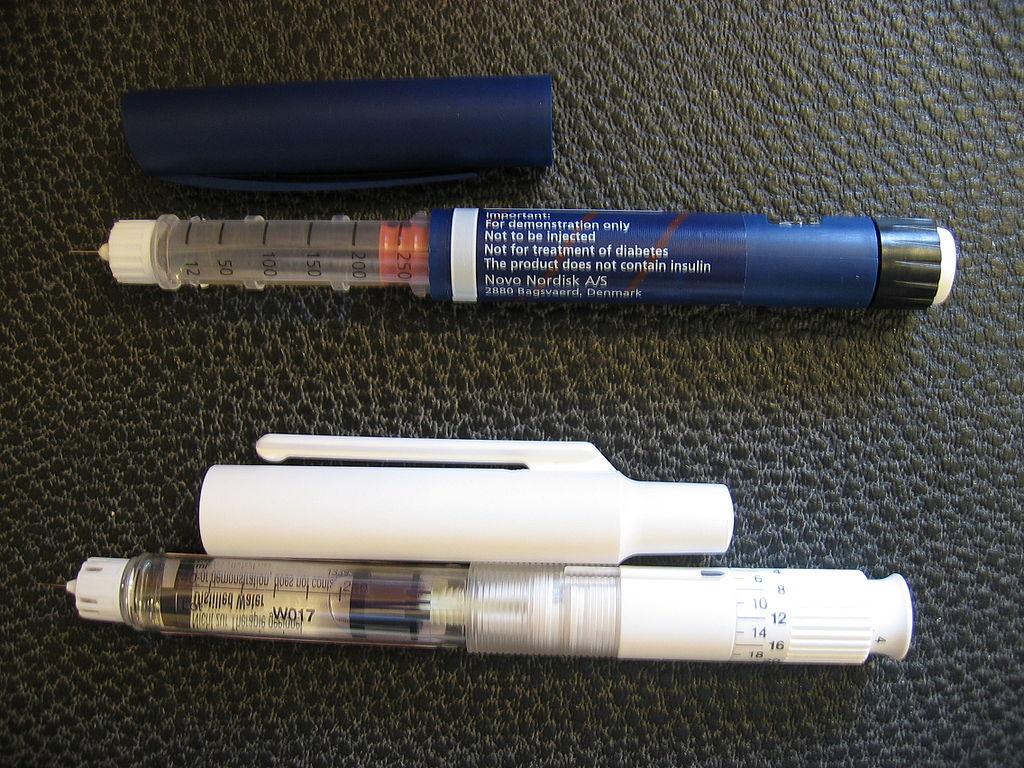
The Federal Trade Commission late Tuesday stayed a lawsuit accusing pharmacy middlemen of gaming the system to inflate the price of insulin — a drug millions of Americans need to survive. When it did, it left experts trying to figure out if President Donald Trump was trying to sabotage the commission’s work, or if it was simply part of his vendetta against Democrats.
Created in 1914, the FTC is tasked with stopping unfair trade practices — particularly those by big corporations that use their dominance to harm small businesses and consumers.
Starting around 1980, Republican and then Democratic administrations — which appoint the agency’s commissioners — greatly diminished the role of the FTC and the Antitrust Division of the Justice Department. The argument then prevailed that despite what the laws themselves said, the goal of antitrust law was efficiency, which would supposedly deliver better outcomes for consumers.
But awareness has grown in recent years that the rise of big box stores, health conglomerates, and tech companies hasn’t been to the uniform benefit of consumers.
In response, the Biden administration began a new era of stepped-up enforcement of laws that had long been on the books. The FTC filed lawsuits against Amazon, to stop the Kroger-Albertson’s merger, and it sued giant health conglomerates. It accused the latter companies of unfairly driving up insulin prices at the expense of diabetics — especially those with low incomes.
That was the case that the FTC stayed on Monday.
The agency did so because two Republican commissioners had recused themselves from the case, saying they had conflicts of interest. A third Republican commissioner hasn’t yet been approved by the Senate. And Trump in March tried to fire the two Democratic appointees, Alvaro Bedoya and Rebecca Kelly Slaughter.
The case was to be heard by the commissioners. But now there aren’t any to hear it.
Bedoya and Slaughter are in court challenging the attempted firings, arguing that the president doesn’t have the power to simply decree a change in the structure of a regulatory commission created by Congress. The suit quotes the Federal Trade Commission Act, which says the president can only remove commissioners “for inefficiency, neglect of duty, or malfeasance in office.”
So long as that lawsuit plays out, the FTC suit against the pharmacy middlemen won’t.
It alleges that the big three pharmacy middlemen excluded cheaper generic forms of insulin from insurance coverage in order to extract larger rebates from manufacturers’ more costly products.
The three biggest middlemen, or pharmacy benefit managers, control nearly 80% of the insured drug transactions in the United Sates. Each is a part of a conglomerate that also owns a major insurer — UnitedHealth Group, CVS Health and Cigna-Express Scripts.
As middlemen, the benefit managers decide which drugs are covered, and which of those have low or no copayments. The FTC suit says that since 2012, they’ve been increasingly aggressive about demanding ever-larger, non-transparent rebates — their critics call them kickbacks — from manufacturers in exchange for covering their drugs.
With insulin, prices were effectively jacked up when the middlemen refused to cover some of the cheapest alternatives at all, the suit said.
It’s clear that for now, anyway, the insulin suit isn’t going anywhere. What isn’t clear is whether that’s what Trump intended when he tried to remove Bedoya and Slaughter.
“Sadly, this was an entirely foreseeable consequence of illegally attempting to fire the minority commissioners,” they said in a joint statement Tuesday decrying the suspension of the insulin suit.
Foreseeable, yes, but was it intentional? The White House press office didn’t respond to questions Wednesday.
On the one hand, Trump in the past has been critical of the pharmacy middlemen. In his first administration, he floated the idea of ending legal exemptions that allow them to collect rebates from manufacturers in exchange for covering their drugs. And in December, then President-elect Trump said of pharmacy benefit managers, “The horrible middleman that makes more money, frankly, than the drug companies, and they don’t do anything except they’re a middleman,” USA Today reported. “I don’t know who these middlemen are, but they are rich.”
Despite all that, Trump hasn’t taken any meaningful action against the health conglomerates that own the middlemen — or against tech moguls such as Elon Musk, Jeff Bezos, and Mark Zuckerberg, who donated millions to his campaign and his inauguration. Meanwhile, Trump has at least temporarily crippled the antitrust watchdog that has tried to rein them in.
Antonio Ciaccia is a Ohio-based drug-pricing expert who has followed the rise of drug middlemen since Trump’s first term. He said the president is yet to back up his tough talk with concrete action.
“In his first term as president, Trump pushed to eliminate the anti-kickback law exemptions that ballooned the prices of medicines like insulin. The Biden Administration refused to implement the policy,” Ciaccia said. “The FTC’s lawsuit against (pharmacy benefit managers) over their role in inflating the prices of insulin was another opportunity to achieve Trump’s original policy goals albeit via different means. Regardless of the intent, the recent shake-up at the FTC effectively ends that pursuit for the foreseeable future.”
Ohio Capital Journal is part of States Newsroom, a nonprofit news network supported by grants and a coalition of donors as a 501c(3) public charity.
